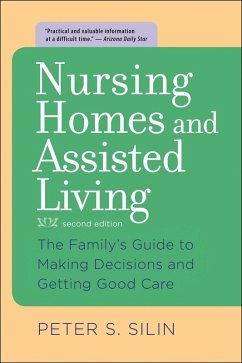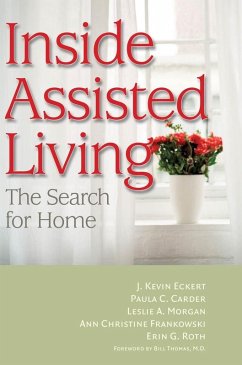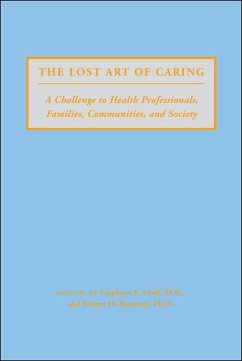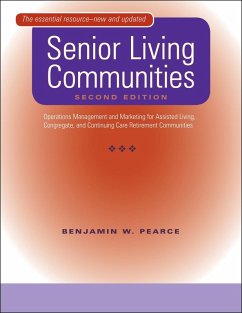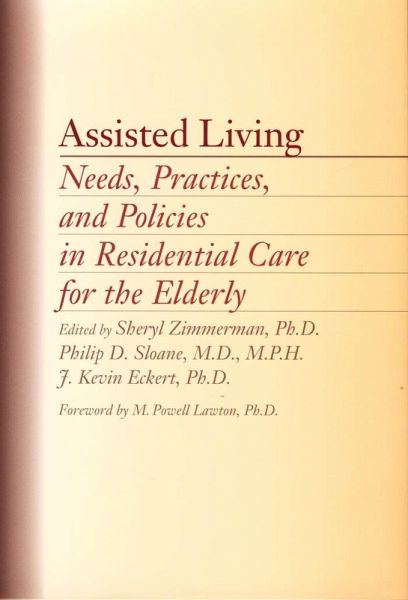
Assisted Living (eBook, ePUB)
Needs, Practices, and Policies in Residential Care for the Elderly

PAYBACK Punkte
17 °P sammeln!
With the number of elderly persons needing long-term care expected to double to 14 million over the next two decades, assisted living has become the popular choice for housing or care. Assisted living represents a promising model of long-term care that blurs the sharp distinction between nursing homes and community-based care and reduces the gap between receiving long-term care in one's own home and in an "e;institution."e; Assisted Living: Needs, Practices, and Policies in Residential Care for the Elderly examines the evolving field of residential care and focuses on national issues o...
With the number of elderly persons needing long-term care expected to double to 14 million over the next two decades, assisted living has become the popular choice for housing or care. Assisted living represents a promising model of long-term care that blurs the sharp distinction between nursing homes and community-based care and reduces the gap between receiving long-term care in one's own home and in an "e;institution."e; Assisted Living: Needs, Practices, and Policies in Residential Care for the Elderly examines the evolving field of residential care and focuses on national issues of regulation, reimbursement, and staffing. The book is based on a four-state study of assisted living facilities and describes the facilities, the persons residing in them and their needs, and how the services vary by facility. Because one-third to two-thirds of residents in assisted living facilities have cognitive impairment, special attention is devoted to dementia care. The book also focuses on how today's long-term health care environment evolved, and it examines the future direction and implications of assisted living.Assisted Living: Needs, Practices, and Policies in Residential Care for the Elderly brings together a group of nationally recognized experts to help define the types of residential care that should be encouraged and sets guidelines for selecting an appropriate type of facility.
Dieser Download kann aus rechtlichen Gründen nur mit Rechnungsadresse in A, B, BG, CY, CZ, D, DK, EW, E, FIN, F, GR, HR, H, IRL, I, LT, L, LR, M, NL, PL, P, R, S, SLO, SK ausgeliefert werden.




